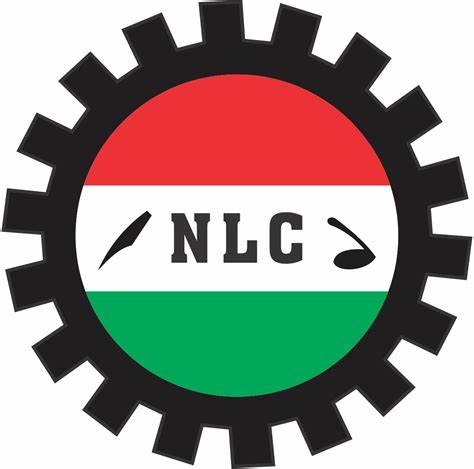by Kayode Komolafe
 These are certainly scary times for young men and women migrating to seek better life elsewhere. The situation is more pathetic in Africa as demonstrated by two tragic developments. The two tragedies are related because they have similar socio-economic undercurrents.
These are certainly scary times for young men and women migrating to seek better life elsewhere. The situation is more pathetic in Africa as demonstrated by two tragic developments. The two tragedies are related because they have similar socio-economic undercurrents.
In South Africa xenophobic attacks, which began a few days ago, have assumed a frightening dimension with at least seven persons killed and more than 5, 000 rendered homeless. The situation has deteriorated to the extent that troops were reportedly deployed yesterday to curb the mindless attacks on fellow Africans by some poor and disoriented South Africans. Nigeria is reported to have set in motion the process of evacuating its citizens from South Africa. This is reminiscent of the xenophobic attacks in 2008 in which 62 persons were killed.
On Sunday, a migrant boat capsized in the Mediterranean with at least 800 migrants drowned. This has reportedly brought the figure of the victims drowned in the sea to about 1, 500 this year alone. It is particularly heart-rending that children aged between 10 and 12 were among those drowned in the unfortunate incident. And among the victims were Africans seeking to escape to Europe for jobs and good life. Italy was to be their first port of call. The Tunisian owner of the ill-fated migrant boat was charged yesterday with “multiple manslaughter.” Meanwhile, the United Nations Commission for Refugees (UNHCR) has had the difficult task of appealing to the conscience of European countries (some of which are former colonial powers) not look the other way while hundreds of human beings perish in the sea. There was a seeming reluctance on the part of the Europeans to activate rescue operations to save some of the hapless migrants.
Pundits may have cultural, psychological and other explanations for these happenings. To be sure, these sad developments are only symptoms of a worsening socio-economic crisis. The attacks and drowning have chillingly brought to the fore, once more, the emptiness of globalisation (or better put, the unjust spread of global capitalism). They also constitute a proof of the monumental failure of neo-liberal policies in Africa and even in the metropolitan centres of capitalism. Neo-liberalism (despite the rhetoric of its ideologues) has failed to deliver economic opportunities for the majority in Europe, South Africa or Nigeria. Indeed, a majority of humanity is excluded from whatever benefits it has generated. That is the coded message in the tragic waste of human lives being reported in South Africa and in the Mediterranean.
Those ideologues who conveniently ignore the social injustice and inequality that their policies promote are simply fixated in their ways. For every socio-economic problem they have standard solutions in the shibboleths of privatisation, deregulation, liberalisation etc. The result has been jobless growth. The Nigerian economy has been rebased as the “largest” on the continent; yet millions of its young women and men of working age are not economic players. Some of them have to migrate to America, Europe, Asia, or South Africa in desperate search for economic opportunities. South Africa has the best-industrialised and technologically developed economy on the continent.
Yet youth unemployment in that country is put at 25%. This is the outcome of the embrace of neo-liberal recipes two decades after dismantling Apartheid in South Africa. It would be interesting to know at this time the views of former South African Finance Minister Trevor Manuel and other economic managers in all these years. The economic capsule recommended for them from Washington is simply not working. The left wing of the party in power in South Africa, the African National Congress (ANC), has been drawing attention to the fundamental flaws on this path to development. Now, a country with a population of 51.6 million cannot absorb two million economic migrants. This is the contradiction that the hoodlums attacking foreigners are feeding upon in a clear case of maladjustment to a terrible condition.
In Nigeria, policy makers are busy playing with growth rates and poverty figures while the scourge of joblessness and mass poverty ravage the land. For almost 30 years, successive economic managers in Nigeria have been staging wild experiments with the economy in the name of privatisation and liberalisation, yet the economy cannot be categorised as developed. In some respects, it is even suffering from de-industrialisation as a number of industries that used to flourish even in the 1980s have simply disappeared from serious reckoning.
It would be interesting to have a comprehensive audit of privatisation since the days of Hamza Zayyad (of blessed memory) in the 1980s. How many of the privatised organisations are flourishing and attracting private capital and technology into the economy as promised? How many of them have simply disappeared after the “buyers” did smart asset stripping? The stories from Nigeria and South Africa are not so much different from the ones issuing from Ghana, Kenya, Egypt or Mozambique. In most of these countries, anti-people policies are glorified as “austerity” and celebrated as an economic magic wand. Inequality is so rationalised that you would think that to widen the gulf between the rich and the poor is a newfound virtue in policy making. Now the consequences are there in the mystery and anguish of Nigerians escaping from shrinking opportunities at home and the misplaced anger of the youths on the streets of South Africa.
There is another dimension to the issue.
The condition of migrant workers should compel this question: has globalisation come to a dead end? After all, what is the content of globalisation if human beings cannot move freely in the world? Enthusiasts of global capitalism often lecture us about the benefits of free trade in wealth-creation. Capital should move freely from one corner of the globe to the other. Goods should also move freely without sympathy for the home industry. So goes the age-long argument among economists.
In that wise, European companies can invest freely in all sectors of economies of African countries. However, this globalisation does not permit jobless African youths to migrate to Europe to seek employment. There is a resurgence of extreme right wing parties in Europe winning elections on the basis of anti-immigration rhetoric. Immigration has become a central electoral issue in some European countries. The reality is that neo-liberal policies embraced by right –wing parties as well as some social democratic ones have also failed in Europe. In particular, Greece and Spain have become basket cases.
Similarly, in the spirit of this badly skewed globalisation South African companies can establish in Nigeria and reap stupendous profits, which they cannot think of at home. All this falls into the logic of global capitalism, neo-liberal ideologues would argue persuasively.
However, globalisation seems to come to a tragic halt when Nigerian traders seek to open shops in poor areas of South Africa or seek jobs in its crisis-ridden economy. It is discomforting for policymakers and public intellectuals to keep talking of globalisation when nations and continents are busy building huge economic barriers to protect their economies.
They should pause their rhetoric and interrogate the borrowed concepts they bandy about on the African continent. There is a fundamental problem with globalisation when human beings cannot move freely across borders to seek economic opportunities. The intellectual fraud in the ideology of globalisation should be rigorously exposed so that African countries would approach economic development more creatively and humanely. This is one of the ways to stop the sort of tragedies unfolding in South Africa and in the Mediterenean.
It is, therefore, pretty suggestible that a new government in Nigeria should look beyond the worn-out neo-liberal recipes in contemplating economic management. Those who worship in the temple of neo-liberal orthodoxy should not be allowed to dominate policy making in the new government if the interests of the poor who are in the overwhelming majority are to be protected. For some of these “technocrats” and ideologues, what passes for economic management is no more than privatisation, liberalisation and playing games with the financial sector. This is no path to development that is based on social justice and equity. There can be no hope for prosperity in the same policy experiments that have only bred poverty and misery in Nigeria, South Africa and other countries in decades. Nigeria should change from economic management whose outcomes would be its migrating citizens drowning in the Mediterranean while some others are being killed in South African ghettoes.
————————-
Op-ed pieces and contributions are the opinions of the writers only and do not represent the opinions of Y!/YNaija














